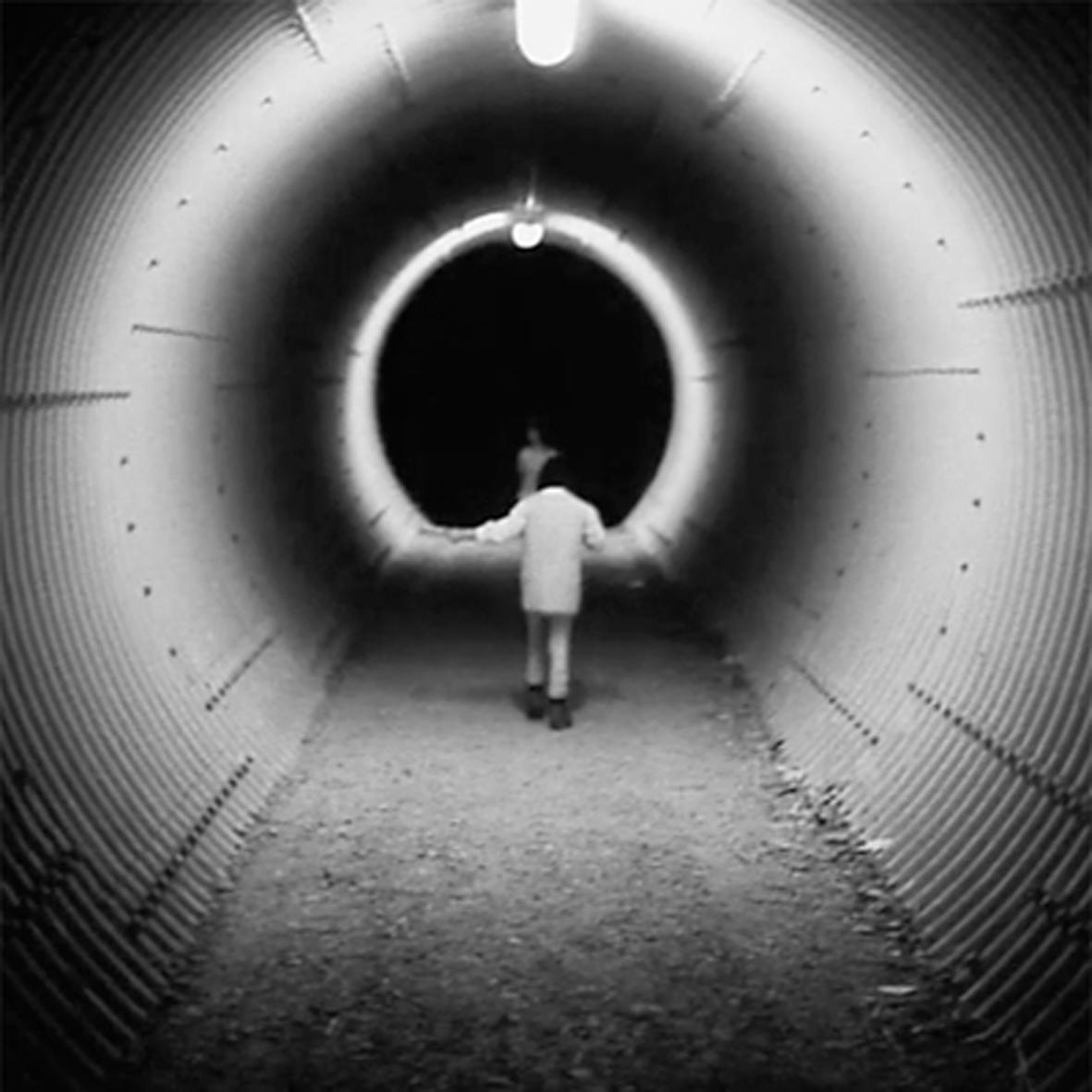 This duo’s latest collaboration is a score composed to accompany Philippe Garrel’s haunting 1968 silent film Le Révélateur, which Lattimore and Zeigler have been intermittently been performing across the US since its debut at Ballroom Marfa’s 2013 silent film festival.  Naturally, Lattimore's harp is the most prominent element, imbuing these pieces with an eerily dream-like and rippling "music box" feel.  However, Zeigler’s presence is much more conspicuous here than it was on their previous Slant of Light (2014), balancing the delicate harp motifs with a bevy of synths, processed guitars, and lovely accordion-like melodies.  In general, I am not enthusiastic about soundtracks disembodied from their visual component, but this is an atypically good one, finding the perfect understated balance between whimsy, melancholy, menace, and surreality.
This duo’s latest collaboration is a score composed to accompany Philippe Garrel’s haunting 1968 silent film Le Révélateur, which Lattimore and Zeigler have been intermittently been performing across the US since its debut at Ballroom Marfa’s 2013 silent film festival.  Naturally, Lattimore's harp is the most prominent element, imbuing these pieces with an eerily dream-like and rippling "music box" feel.  However, Zeigler’s presence is much more conspicuous here than it was on their previous Slant of Light (2014), balancing the delicate harp motifs with a bevy of synths, processed guitars, and lovely accordion-like melodies.  In general, I am not enthusiastic about soundtracks disembodied from their visual component, but this is an atypically good one, finding the perfect understated balance between whimsy, melancholy, menace, and surreality.
Few instruments can lend themselves nearly as well to evoking a mysterious unreal world of flickering and shadows as the harp.  Of course, the downside to the harp is that its singular sound and lack of versatility makes it very hard for an aspiring harpist to carve out their own niche without at least offering something else as well (it is unlikely that anyone would be familiar with Joanna Newsom if she had not started singing, for example).  Against the odds, Mary Lattimore has done a remarkably impressive job of making her mark as a pure harpist, though she admittedly embellishes her work with plenty of effects and studio techniques, which is precisely why her partnership with Jeff Zeigler is such a fruitful one.  Zeigler thrives primarily as a behind-the-scenes guy, working as a producer and engineer for artists such as Nothing and Kurt Vile.  In short, he offers that "something else," ensuring that this album is as gorgeous, lush, and hallucinatory as possible and crafting inspired arrangements that alternately smolder, dissolve, and plunge into deeply lysergic psychedelia.  In addition to all those things, Zeigler and Lattimore also do a passable job of sounding vaguely French and vaguely fairy tale-like.  Much like Yann Tiersen’s Amélie score, Le Révélateur sounds like something that could have been recorded inside a snowglobe, though the two take very different tones, as this album is understated, melancholy, and darkly hallucinatory rather than pretty, kinetic, and Romantic.
As much as I enjoy the more experimental bits through the album, they are best appreciated as a counterbalance to the more conventional beauty of Lattimore's tender and elegant melodic themes.  The duo shines brightest with "A Tunnel," though similar motifs recur again throughout the album.  The composition itself is not particularly complex, as it is just a lovely minor key progression of harp arpeggios, but it is gorgeously enhanced by Zeigler’s melancholy and ghostly swells of faux accordion.  Also, as the piece progresses, Lattimore increasingly dances around her central melody to create unexpected harmonies.  The contrast between the piece's various textures is quite masterful as well, as the shadowy and spectral atmospherics complement the crisp lightness of the harp wonderfully.  Elsewhere, "Laurent and Bernadette" presents the reverse, as Lattimore weaves an undulating backdrop of rippling chords beneath a languorous and lovelorn "accordion" theme.  Trying to choose a favorite piece is a fundamentally doomed endeavor, however, as all of the pieces seamlessly drift into one another in a deliciously disorienting flow.  None of Le Révélateur's stronger themes are meant to hold together for long, as the score weaves a spell of endless fragility and creeping shadows: anything beautiful is fated to evaporate into an unsettling miasma of wildly panning and pointillist harpistry, ominous reverberations, warped electronics, and hallucinatory echoes.  Conversely, no matter how skittering, abstract, ugly, and unhinged a piece like "Running Chased" may get, there is always a piece like the shimmering and celestial "Stanislas" ready to emerge from the wreckage.
Lamentably, I have not yet seen Garrel's Le Révélateur in its glorious entirety, but it definitely seems like Lattimore and Zeigler have captured the mood of its more strange and iconic scenes: the film has absolutely no shortage of mysterious subterranean tunnels, looming shadows and ominous staircases.  It is also quite prone to viewing the world through a child’s eyes and toying with the precarious and porous boundary between reality and artifice.  Though capturing all of that in a score is unquestionably a tall order, Lattimore and Zeigler have done an admirable job indeed.  As with all soundtracks, Le Révélateur's magic would presumably be greatly enhanced if I was hearing it in its intended context, but the flickering dream-like spell this soundtrack casts is an appealing one nonetheless.  It can certainly stand alone, even if that is not the ideal.  Of course, given that the whole idea of a soundtrack is to lurk in the periphery rather than grabbing my attention, this is not the place to go for Lattimore's strongest work, though it definitely highlights her talents as a composer and serves as an illuminating companion piece to her recent At the Dam.  More importantly, it is a unique and quietly beautiful minor gem that was clearly a labor of love.
 
Read More

